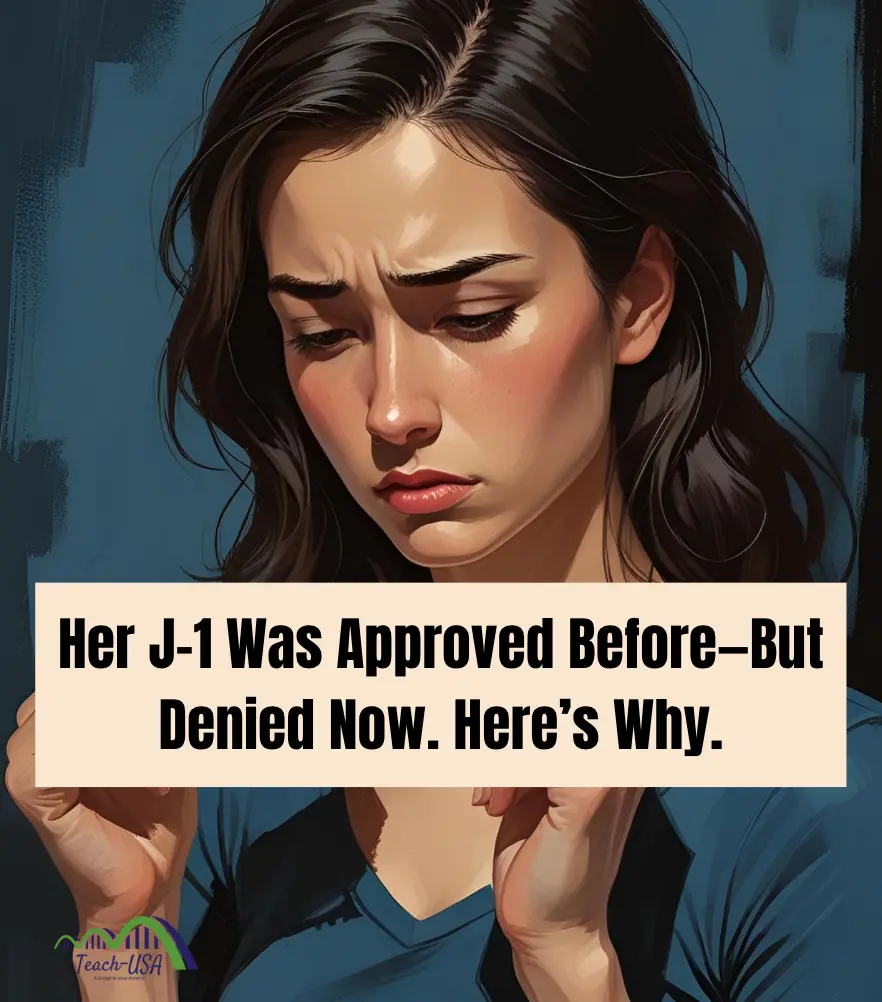Why a Former J-1 Teacher Got Denied Her J-1 Visa (And What You Can Learn From It)
When it comes to U.S. visas, every story is different—but every story carries a lesson.
Recently, a former J-1 teacher—let’s call her Maria* (not her real name)—shared her journey with us. Her experience is a reminder to all international teachers: your visa history follows you, and what worked before may not work the same way again.
Maria’s Story
Years ago, Maria entered the U.S. as a J-1 teacher. Like many, she was subject to the 212(e) two-year home residency requirement. Back then, one of the ways to get a waiver was by conducting a research study, which Maria did successfully.
That waiver allowed her to switch from J-1 to H-1B, where she continued teaching in the U.S. for several years. When her H-1B expired, she returned home to the Philippines. At that point, she didn’t apply for a green card—she wanted to rest, recover from health issues, and later resumed teaching with DepEd.
Fast forward to today: encouraged once again by friends and opportunities, Maria applied for another J-1 visa. But this time, she was denied.
Why Was She Denied?
From her perspective, Maria wasn’t sure what went wrong. But looking at the bigger picture, here’s what likely happened:
- Immigrant Intent Concerns – Once a teacher has already used a waiver to transition from J-1 → H-1B, a consul may assume the teacher’s real intent is to stay long-term, not just “cultural exchange.”
- Stricter J-1 Scrutiny – U.S. consulates today are much more careful with J-1 renewals, especially for former J-1 holders who already benefited from a waiver in the past.
- Past Patterns Matter – Even though Maria followed the rules (she returned home when her H-1B ended), her history shows a pattern of moving toward immigrant status. That alone may have raised doubts.
The Lesson for Teachers
Maria’s case is a warning:
- Once you’ve had a waiver, it’s very difficult to be granted another J-1. Consuls may think you’re trying to bypass the program’s true purpose.
- Every visa decision is tied to your past. Even if you complied before, the intent they see in your history can affect your chances.
- Plan long-term. If your true goal is to live and work in the U.S. permanently, consider whether J-1 is still the right path—or if you should look at alternatives like H-1B or even EB-2/NIW.
Maria’s Story
Maria’s courage in sharing her story is a gift for other teachers who may be thinking of “just applying for another J-1.” Her experience shows that it’s not that simple anymore.
If you’re a former J-1 teacher considering your options, ask yourself:
- Do I want another temporary program, or am I aiming for long-term residency?
- Does my visa history already suggest immigrant intent?
- Would another path—like H-1B, NIW, or even Canada PR—be more realistic?
Remember, every application is judged not just on your papers today, but on the story your past visas tell.
If you are in a similar case and want to explore the H-1B or NIW route instead of J-1, feel free to email apply@teach-usa.net to learn more.

